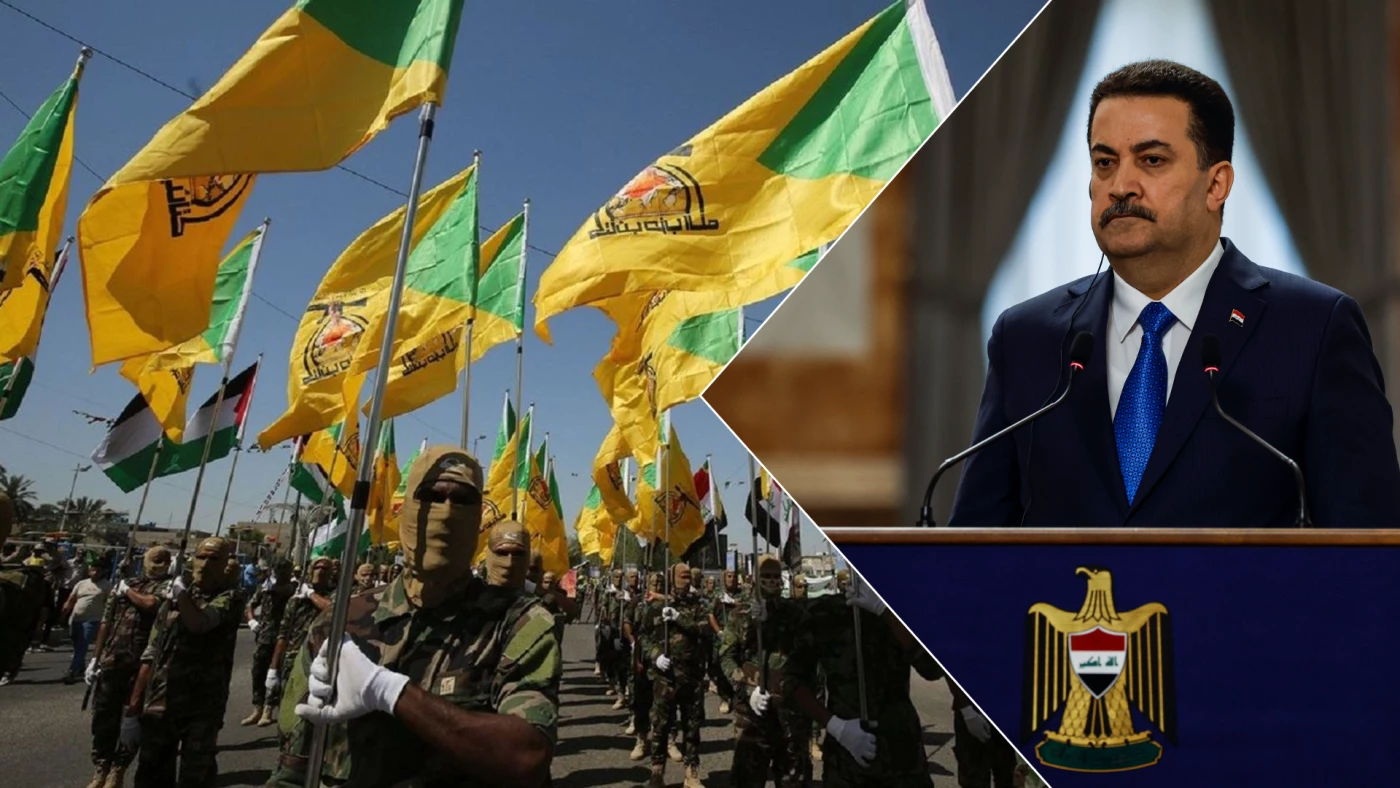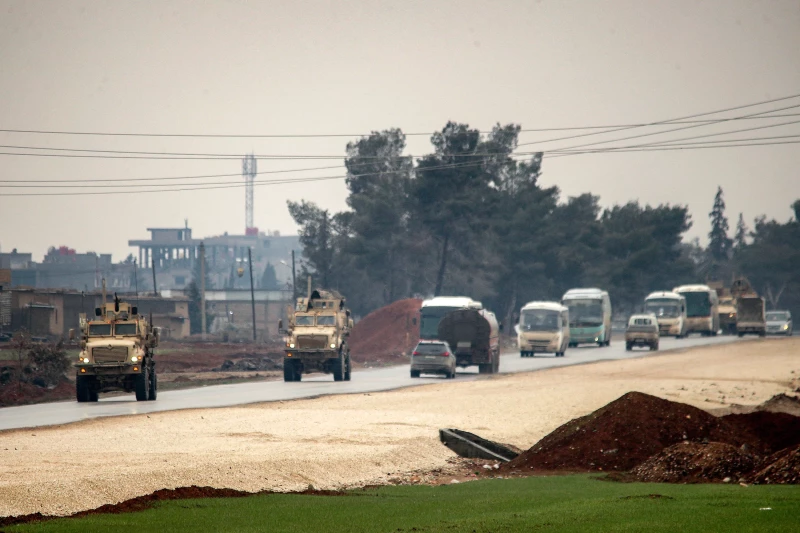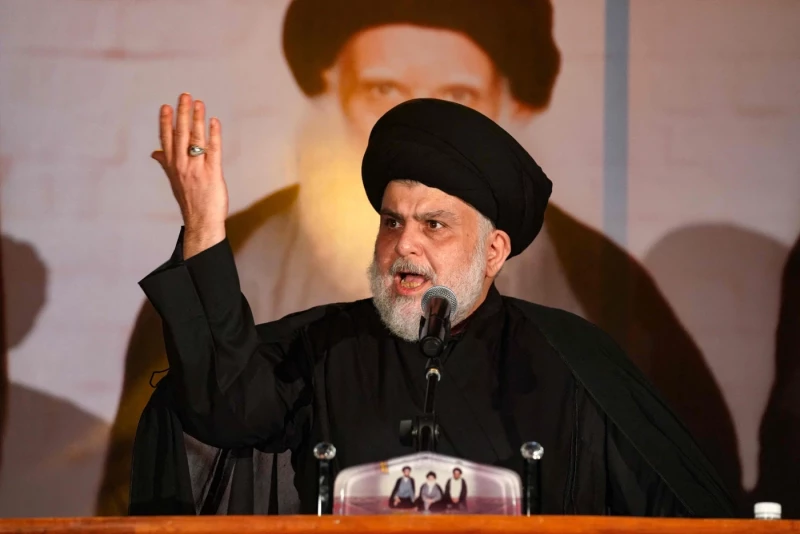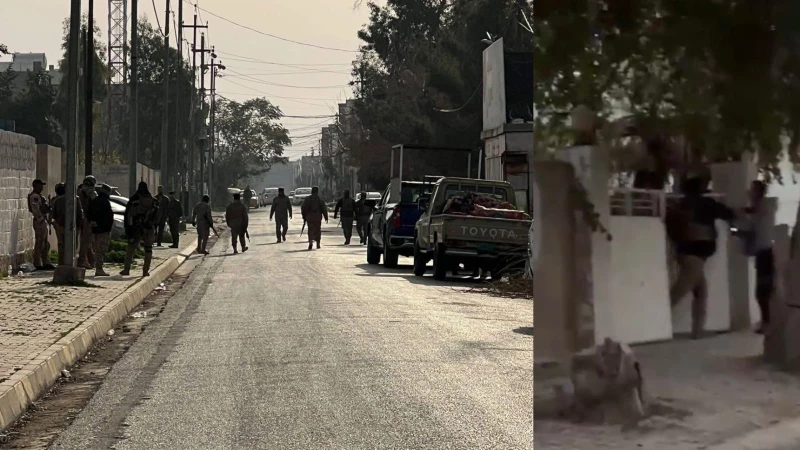DUBAI, UAE - As Iraqi armed factions increase their attacks on Israeli targets, the silence of Iraqi government emerges as a pivotal factor, raising numerous questions about the nature and reasons behind the official stance.
The government appears hesitant to take a clear position, and while this raises many questions about the factors behind it, it also raises concerns about the risks Baghdad might face if the US takes punitive actions, making this issue a focal point of sensitive regional and international intersections.
The Islamic Resistance in Iraq, an umbrella network of Iran-backed armed groups, has claimed hundreds of attacks against Israeli and American targets since October 2023 in response to the war in Gaza.
The group has intensified its attacks on Israeli territory in recent months following the killing of several “Axis of Resistance” leaders in Israeli strikes.
Ihsan al-Shammari, head of the Iraqi Center for Political Thought, said that several reasons contribute to the Iraqi government’s silence, “most notably the government’s plan not to escalate the rhetoric against the factions, as well as the fact that these factions form the backbone of the current government, making it difficult to abandon its political base.”
“The third reason lies in preventing media escalation to avoid international sanctions, while the fourth reason revolves around [Iraqi Prime Minister Mohammed Shia’ al-] Sudani's inability to curb these attacks,” Shammari told The New Region.
“The silence indicates the inability to address this issue… confronting the factions would open an internal political front, which Sudani cannot handle,” he added.
Shammari claimed that Washington has exerted pressure on Sudani to stop the factions' attacks but said that all of the premier’s efforts in this regard have been rejected by the ruling Shiite Coordination Framework.
“Sudani is worried,” said, Shammari, noting that the new American administration under President-elect Donald Trump “is strict regarding the factions' issue,” implying that Iraq will face more pressure on this matter.
An official Iraqi security delegation reportedly visited Tehran in recent days in an attempt to neutralize Iraqi factions from the current escalation, as the factions continue to launch attacks on Israeli sites.
“This entity [Israel] has left no choice for the people of the region except deterrence and resistance, after it continued its violations and escalation against human rights and dignity, and did not take into account any political or humanitarian considerations,” said a senior leader in the factions who spoke to The New Region on condition of anonymity.
“There are international pressures on some governments in the region, including Iraq, to prevent them from supporting the resistance or taking a clear stance on the occupation’s practices, but the resistance remains committed to its approach and will not hesitate in fulfilling its defensive duty,” he added.
The leader stressed that the factions remain firm in their stance and will not be deterred by international threats and sanctions.
The Iraqi government in late October submitted an official protest note to the United Nations over Israel’s use of Iraq’s airspace for its attack on Iran, describing it as a “flagrant violation.”
Last month, the Iraqi government officially submitted a protest note to the UN Secretary-General and the Security Council regarding what it described as Israel’s “violation” of Iraqi airspace and its use to attack Iran.
The statement did not directly accuse the US of involvement in the operation and use of Iraqi airspace, but did note that Sudani has directed the foreign ministry to “communicate with the American side regarding this violation, in accordance with the terms of the bilateral Strategic Framework Agreement, and the US’ commitment to the security and sovereignty of Iraq.”
Al-Nasser Duraid, a political affairs researcher from Canada, said that Sudani is currently in a “weak” position and unable to direct the Coordination Framework on this matter, citing continued disputes between the Iraqi premier and the ruling Shiite alliance – of which he is a key member.
“Sudani is now embarrassed by international obligations, especially toward Washington, concerning the factions' issue,” Duraid told The New Region
“Sudani is unable to support the US regionally on the one hand, and on the other hand he is unable to align with his partners in the Coordination Framework, who themselves control some well-known resistance factions,” he added.
“The Trump administration has not yet taken office, so no one knows what plans or decisions will be made against Iraq concerning the factions’ file,” said Duraid, adding that “Sudani is now in an unenviable position.”
Despite voicing strong support for Iran and resistance groups in the region and repeated condemnation of Israel’s actions, Sudani in October said that “the decision of war and peace” was in the hands of the government, warning “anyone who deviates from that will face the state,” likely referring to the armed groups.
Iraq’s top Shiite authority Grand Ayatollah Ali al-Sistani, earlier this month highlighted significant challenges currently facing the country, urging Iraqis to learn from past experiences, prevent foreign interference, enforce the rule of law, and restrict arms to the state. His call was widely accepted by the political parties.
Nouri al-Maliki, Iraq’s former prime minister and key Coordination Framework figure, last week stressed that Baghdad needs to choose whether it will enter the current regional conflicts, or focus on preserving its own internal security, while reiterating his support for Sistani’s recommendations.
Additional reporting by Rami al-Salihi



 Facebook
Facebook
 LinkedIn
LinkedIn
 Telegram
Telegram
 X
X


